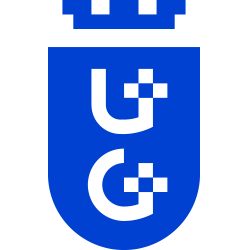https://orcid.org/0000-0002-0170-9834
Adiunkt w Zakładzie Historii Nauki, Oświaty i Wychowania w Instytucie Pedagogiki na Wydziale Nauk Społecznych Uniwersytetu Gdańskiego. Adres: Instytut Pedagogiki UG, ul. Jana Bażyńskiego 4, 80-309 Gdańsk

ul. Bażyńskiego 1a 80-952 Gdańsk
Polska
ISNI ID: 0000 0001 2370 4076
GRID ID: grid.8585.0
Paweł Śpica
Polska Myśl Pedagogiczna, Numer 9/1 Pedagogika konserwatywna, IX (2023), s. 185 - 203
https://doi.org/10.4467/24504564PMP.23.008.18237W artykule została podjęta problematyka uchylania się społeczności polskiej od obowiązku szkolnego dzieci w Prusach Zachodnich w przededniu Kulturkampfu i prób wywierania wpływu na tę społeczność przez czasopismo „Pielgrzym”, które stanowiło jedno z najbardziej opiniotwórczych polskich pism w badanym regionie. Przedmiot podjętych analiz stanowiły artykuły prasowe publikowane na łamach badanego pisma w latach 1869–1870, w których redaktorzy „Pielgrzyma” dokonali krytycznej analizy postaw społeczności polskiej i kreowali pozytywny wizerunek pruskiej szkoły ludowej. Celem prowadzonych badań było poznanie poglądów prezentowanych na łamach „Pielgrzyma” na uchylanie się niemałej grupy rodziców polskich od posyłania dzieci do wskazanego typu szkół oraz przybliżenie prób edukacyjnego oddziaływania za pomocą wspomnianego pisma na zmianę antyszkolnych postaw prezentowanych przez część polskich rodziców. W artykule przedstawiono stanowisko „Pielgrzyma” w odniesieniu do wychowawczych i dydaktycznych aspektów pracy szkoły. Ukazano rolę nauczyciela oraz zalecenia dotyczące pracy z dziećmi unikającymi obowiązku szkolnego.
Evasion of Compulsory Education by the Polish Community of West Prussia on the Eve of Kulturkampf in the Views of the Editors of the Catholic Magazine Pielgrzym (Pilgrim)
The article deals with the issue of Polish community avoiding compulsory schooling for children in West Prussia on the eve of Kulturkampf and attempts to exert influence on this community through the Pielgrzym magazine, which was one of the most opinion-forming Polish magazines in the studied region. The subject of the analyzes were press articles published in the journal in the years 1869–1870, in which the editors of Pielgrzym made a critical analysis of the attitudes of the Polish community and was creating a positive image of the Prussian folk school. The aim of the research was to get to know the views presented in the pages of Pielgrzym to the avoidance of a part of Polish parents from sending their children to the indicated type of schools and to present the attempts of educational influence with the use of the aforementioned magazine to change anti-school attitudes presented by some Polish parents. The article presents the views of Pielgrzym in relation to the educational, didactic and pedeutological aspects of the school’s work, recommendations for working with children evading compulsory education were also presented.
Paweł Śpica
Polska Myśl Pedagogiczna, Numer 4, IV (2018), s. 323 - 342
https://doi.org/10.4467/24504564PMP.18.017.8656The Education of Rural Women in West Prussia as Seen by Anastazja Pospieszyłowa (born Czarlińska) (1801–1878)
Paweł Śpica
Polska Myśl Pedagogiczna, Numer 5, V (2019), s. 327 - 343
https://doi.org/10.4467/24504564PMP.19.018.11113Moral Education in the light of “Moral Dissertations” Published in the Pages of “Katolik Dyecezyi Chełmińskiej” in the Years 1849–1850
Summary: Since ancient times morality has been the subject of reflection by philosophers and theologians of various religions. Religious education is closely related to moral education. From the beginning, ethical issues has also occupied an important place in the teaching of the Catholic Church. In the 17th and 18th centuries, moral problems were described in particular by authors of moral theology textbooks. Along with the development of the nineteenth-century periodicals, the issues of moral education were also addressed in Polish newspapers. One of them was the “Katolik Dyecezyi Chełmińskiej”. This newspaper was published in West Prussia in 1849–1851. In this magazine were published, among others, “moral dissertations”, aimed at spreading moral attitudes and behavior in accordance with the teaching of the Catholic Church. A purpose of the article is a (re)construction of moral education in the light of these dissertations, as well as to clarify: who they were addressed to, what they were to serve and what moral ideas they tried to expand.